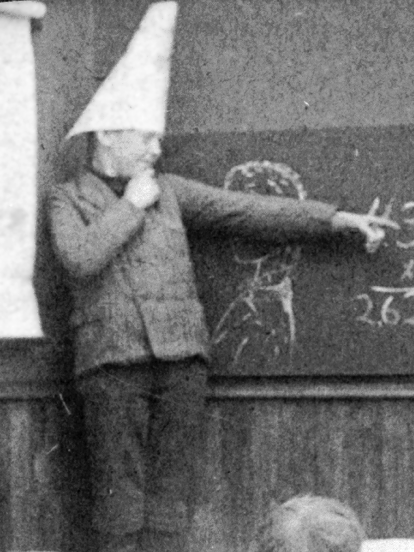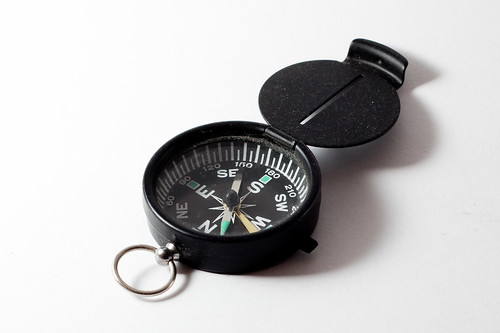Claiborne has a chapter called Economics of Rebirth with a section called "God's Economy." He adheres to the school of "
Sabbath economics" which I'm just exploring and think is interesting. I have a minor in Economics and have been recently interested in the "economics of abundance" as I discovered it from Chris Anderson - first in his book
The Long Tail
, then in
his bloggings about economics of abundance, and then in his next book
Free: How Today's Smartest Businesses Profit by Giving Something for Nothing
.
Given our technology and productivity, I've often wondered what's the minimum hours a person in America would need to work per week to survive. Quantifying 'survival' as poverty-level income as established by the
2009 Federal Poverty Guidelines yields $10,830. Quantifying 'productivity' as
GDP per hour worked from the Bureau of Labor Statistics is $55/hour. Factor in a 10% profit for firms and employees' hourly wage could be $50/hour. So, $10,830 / $55 = 217 hours per year. So,
as a society, we only need to work 4 hours per week if we want to simply 'survive' - keeping in mind that American 'poverty' measurements typically account for American standards of living (i.e., utilities such as mobile phones, etc.) Truly we live in a society of abundance. So why don't we experience it?
I'm an adherent of Hanlon's razor - "never attribute to malice that which is adequately explained by stupidity" or more diplomatically, "never ascribe to malice that which is adequately explained by incompetence." I'm not the zealot of free-market capitalism I once was, nor am I a polemical detractor nor economic revolutionary. So, without discounting the malice of greed that permeates our economy, I'll point out a large economic cost - coordination, generally called 'administrative' cost on income statements. Finding, hiring, training, and equipping the right people, who collect, make, and assemble the right materials into things, and then move those things to the right people - the people who need those things. I think some sociologists (like Claiborne) underestimate this coordination cost or attribute it to malice, and so deride it in works of charity. (Economists may overestimate this coordination cost, or ignore how much of it goes to astronomical salaries for executives.)
Anyway, Claiborne writes, "the social-work model can easily entangle the church in the
efficiency of brokering services and resources in a web of 'clients' and 'providers' and struggling to retain God's vision of rebirth, in which we are all family. Faith-based nonprofits can too easily be the mirror image of secular organizations, maintaining the same hierarchies of power and separation between rich and poor. They can too easily merely facilitate the exchange of goods and services, putting plenty of professionals in the middle to guarantee that the rich do not have to face the poor and that power does not shift. Rich and poor are kept in separate worlds, and inequality is carefully managed but not dismantled."
I'll offset with a personal example.
Tiffany and I went shopping today for groceries to pack bag meals for a downtown outreach. We go to Sam's and buy the value (i.e., 'efficient') packs, then we put together 20 or 30 bag meals and bring them downtown to an area where we meet some poor and homeless folks to give them food, clothing, and other supplies, and just generally chat and hang out. While shopping today, we talked about our list of what we already had, what we needed to buy, and where we would store everything, when we would pack it all, and how we would schedule our trip downtown tomorrow - our coordination costs. All told I'd say we'll spend about $75 to give out 30 meals or so - $2.50 per meal.
The Community Food Bank of Eastern Oklahoma received a $2 million grant to feed 58,000 families with kids. The boxes we packed looked like they would last for a week of 3-meals-a-day. So assuming 3 family members in each family, that's 63 meals for 58,000 families or 3,654,000 meals for $2,000,000 - $0.54 per meal. Because of their scale, CFBEO's coordination costs are much lower. CFBEO 'merely facilitates the exchange of goods and services' - I will not 'face the poor' to whom they distribute the boxes I packed. And yet, I don't believe it's a bad thing. ;)
Yes, this is crude efficiency. No, I won't stop going downtown to "face the poor." Nor will I stop donating to charities - 'brokers of goods and services.' I believe we should do both. I love others because God loves them. I love that God has given me an incredible job - I'm paid very well to do something I love and something I believe improves the world. I'm a steward of the time and resources God has given me. I'll spend some personally - 'face to face' with the poor downtown; but it will also help His children if I simply donate resources to CFBEO - others who work 'face to face' with the poor.
Tagline: We don't have to live in 'separate worlds' if we live with love for the whole world. I'm sure Claiborne would agree, I just wanted to make the point in support of traditional charities.





